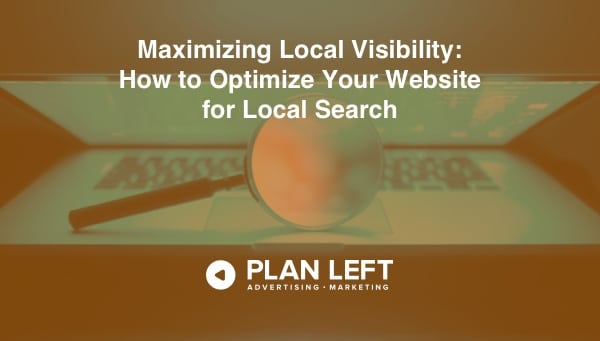
Local SEO refers to the process of optimizing a website to rank higher in search engine results for specific geographical locations. It is a crucial aspect of digital marketing for businesses with physical locations, such as brick-and-mortar stores, restaurants, and service providers. By optimizing for local search, businesses can increase visibility and attract more customers from their local area.
The importance of Local SEO can be seen in the fact that more and more consumers are using search engines to find local businesses. For example, when someone searches for “pizza near me,” they are likely looking for a pizza restaurant in their immediate vicinity. By optimizing for local search, businesses can ensure that their website appears at the top of search results for relevant local queries. This can lead to increased foot traffic and sales for local businesses.
Another important aspect of Local SEO is the use of local citations. A local citation is a mention of a business’s name, address, and phone number (NAP) on other websites. The more citations a business has, the more likely it is to appear in local search results. This is because search engines use citations as a way to verify a business’s location and contact information. By ensuring that their NAP information is consistent across all citations, businesses can improve their chances of appearing in local search results.
Additionally, Local SEO also includes optimization of Google My Business (GMB) listing, which is a free tool offered by Google for businesses to manage their online presence across Google, including Search and Maps. By completing your GMB profile, adding photos, and encouraging customer reviews, businesses can improve their visibility in Google Maps and local search results.
Claiming your Google My Business Listing
Claiming your Google My Business (GMB) listing is an important step in optimizing your business’s online presence and visibility in local search results. GMB is a free tool offered by Google that allows businesses to manage their online presence across Google, including Search and Maps. By claiming and verifying your GMB listing, you can ensure that your business’s information is accurate and up-to-date, making it more likely to appear in local search results.
The first step in claiming your GMB listing is to search for your business on Google. If a listing for your business already exists, you will need to claim it by verifying that you are the owner or manager of the business. If a listing does not exist, you can create a new one by clicking on the “Add your business” button.
Once you have claimed your GMB listing, you will be prompted to verify your business. This can typically be done by phone or mail. Once your business is verified, you can begin to update and optimize your listing.
It’s important to ensure that the information on your GMB listing is accurate, including your business’s name, address, phone number, and hours of operation. This is because search engines use this information to verify the location and contact information of a business, making it more likely to appear in local search results. Additionally, customers often use this information to contact or visit your business, so it’s important to make sure it is up-to-date.
Another important aspect of your GMB listing is adding photos of your business and encouraging customers to leave reviews. Photos can help customers get a sense of your business’s atmosphere and offerings, while reviews can provide valuable feedback and help increase trust and credibility.
Once your GMB listing is claimed and updated, you can also use the tool to monitor and respond to customer reviews, track your business’s performance, and make updates to your listing as needed. This can help you stay ahead of the competition and improve your visibility in local search results.
In conclusion, claiming and verifying your GMB listing is an important step in optimizing your business’s online presence and visibility in local search results. By ensuring that your listing’s information is accurate, including your business’s name, address, phone number, and hours of operation and by encouraging customer reviews and adding photos, you can improve your chances of appearing in local search results, and increase trust and credibility. Additionally, using the GMB tool to monitor and respond to customer reviews, track your business’s performance, and make updates to your listing as needed can also help you stay ahead of the competition and improve your visibility in local search results.
Building Local Citations
Building local citations is an important aspect of Local SEO, as it can increase visibility and attract more customers from a specific geographical location. A local citation is a mention of a business’s name, address, and phone number (NAP) on other websites. The more citations a business has, the more likely it is to appear in local search results.
One of the most effective ways to build local citations is by adding your business to online directories such as Yelp, Yellow Pages, and Bing Places. These directories are popular among consumers looking for local businesses and can provide valuable exposure for your business. When adding your business to these directories, make sure to include your business’s NAP information, a brief description of your business, and any relevant categories or keywords.
This is a list of common online directories:
- Google My Business: Google’s official directory for local businesses. It allows businesses to manage their online presence across Google, including search and maps. It’s free and is considered one of the most important directories for local SEO.
- Yelp: A popular review and listing site for local businesses. It allows customers to leave reviews and businesses to respond to them. It’s free to claim and update your business listing but businesses can pay for advertising and other premium features.
- Bing Places: Bing’s official directory for local businesses. It allows businesses to manage their online presence across Bing, including search and maps. It’s free and is considered as a good alternative to Google My Business.
- YellowPages: A directory that lists local businesses and their contact information. It allows customers to leave reviews and businesses to respond to them. It offers both free and paid listing options.
- SuperPages: A directory that lists local businesses and their contact information. It allows customers to leave reviews and businesses to respond to them. It offers both free and paid listing options.
- Foursquare: A location-based social media and review platform that allows users to check-in and leave reviews for local businesses. It’s free to claim and update your business listing but businesses can pay for advertising and other premium features.
- TripAdvisor: A popular travel website that allows customers to leave reviews for local businesses, including hotels, restaurants, and attractions. It’s free to claim and update your business listing but businesses can pay for advertising and other premium features.
- Angie’s List: A directory that lists local businesses and their contact information. It allows customers to leave reviews and businesses to respond to them. It’s a subscription-based service.
- BBB: The Better Business Bureau’s directory of businesses that allows customers to leave reviews and businesses to respond to them. It’s free to claim and update your business listing but businesses can pay for accreditation and other premium features.
- CitySearch: A directory that lists local businesses and their contact information. It allows customers to leave reviews and businesses to respond to them. It offers both free and paid listing options.
All these directories have their own unique features and audience, so it’s important to understand which directories are most relevant to your business and what kind of audience they attract. Google My Business and Yelp are considered the most important directories for Local SEO and are a great place to start. Bing Places is considered as a good alternative to GMB. Other directories like YellowPages, SuperPages, Foursquare, TripAdvisor, Angie’s List, BBB, and CitySearch can also be used to build local citations and increase visibility.
Another way to build local citations is by getting listed on local business directories, chamber of commerce websites and industry-specific directories. Additionally, getting listed on local news websites or getting featured on local blogs can also help in building citations.
If you can afford it, I recommend using a managed local listing service. The top three are:
- Yext: A managed local listing service that allows businesses to manage their online presence across a wide range of directories, including Google My Business, Yelp, Bing Places, and more. It also provides analytics and reporting tools to track performance and a knowledge graph feature to ensure accurate information across all directories. Yext offers both a free and paid version of their service.
- BrightLocal: A managed local listing service that allows businesses to manage their online presence across a wide range of directories, including Google My Business, Yelp, Bing Places, and more. It also provides analytics and reporting tools to track performance and a feature to check and fix duplicate listings. BrightLocal offers both a free and paid version of their service.
- Advicelocal: A managed local listing service that allows businesses to manage their online presence across a wide range of directories, including Google My Business, Yelp, Bing Places, and more. It also provides analytics and reporting tools to track performance and a feature to check and fix duplicate listings. Advicelocal offers a paid version of their service.
All these managed local listing services have similar features, such as the ability to manage listings across multiple directories, analytics and reporting tools, and the ability to check and fix duplicate listings. However, some of the notable differences are the pricing plans and the number of directories they support. Yext and BrightLocal offer both free and paid plans, while Advicelocal is a paid-only service. Yext has a knowledge graph feature which is a unique value proposition. All these services are great options for businesses looking to streamline their online presence and ensure accurate information across all directories.
It’s important to note that when building citations, it’s important to ensure that your business’s NAP information is consistent across all citations. This is because search engines use citations as a way to verify a business’s location and contact information. Inconsistencies in NAP information can confuse search engines and make it more difficult for your business to appear in local search results.
The importance of local citations for local search visibility cannot be overstated. Search engines use local citations as a way to verify a business’s location and contact information. The more citations a business has, the more likely it is to appear in local search results. Furthermore, local citations can also help to boost a website’s authority and credibility, which can further increase visibility in local search results.
Building local citations is an important aspect of Local SEO, as it can increase visibility and attract more customers from a specific geographical location. Adding your business to online directories such as Yelp, Yellow Pages, and Bing Places, and local business directories, chamber of commerce websites and industry-specific directories, local news websites or getting featured on local blogs can be an effective way to build local citations. It’s important to ensure that your business’s NAP information is consistent across all citations to improve chances of appearing in local search results and boost website’s authority and credibility.
On-Page Optimization
There are several key aspects to on-page optimization, including the inclusion of address and phone number on the website, the use of local keywords in website content and metadata, encouraging customer reviews, using header tags and schema markup, optimizing for mobile, and using local content.
- Including address and phone number on website: Having your business’s address and phone number prominently displayed on your website can help search engines understand the location and contact information of your business, which can improve your local search rankings. This information should be included in the header or footer of your website, and should be consistent across all pages of your website.
- Use of local keywords in website content and metadata: Using relevant local keywords in your website’s content and metadata can help search engines understand the location and nature of your business. This includes keywords such as the name of your city, state or region, as well as relevant industry terms. Additionally, including your business’s address and phone number in the metadata of your website can also help search engines understand your business’s location.
- Encouraging customer reviews: Encouraging customers to leave reviews of your business on popular review sites such as Google My Business, Yelp, and TripAdvisor can help improve your local search rankings. Positive reviews can also boost consumer trust and confidence in your business, which can lead to more conversions.
- Use of header tags and schema markup: Header tags (H1, H2, H3, etc.) and schema markup are used to structure the content on your website and provide additional information to search engines. Properly using header tags can help search engines understand the hierarchy of information on your website, while schema markup can provide additional information about your business, such as reviews and ratings.
- Optimizing for mobile: With the increasing number of people accessing the internet from mobile devices, it’s important to ensure that your website is optimized for mobile. This includes using a responsive design that automatically adapts to the size of the screen, as well as ensuring that your website loads quickly on mobile networks.
- Using local content: Using local content on your website can help search engines understand the location and nature of your business. This includes information about your local community and local events, as well as creating content that is specific to your location. Additionally, including local information such as your business’s address and phone number in your website’s content can also help improve your local search rankings.
On-page optimization is an important aspect of improving the visibility and ranking of a website in search engine results pages. By including address and phone number on the website, using local keywords in website content and metadata, encouraging customer reviews, using header tags and schema markup, optimizing for mobile, and using local content, businesses can improve their search engine rankings and reach more customers in their local area.
Monitoring and Tracking Local Search Ranking
Monitoring and tracking local search ranking is an important aspect of search engine optimization (SEO) for businesses that want to improve their visibility in local search results. Local search ranking refers to how well a business’s website or online listing appears in search results for specific keywords and phrases in a particular location.
There are a variety of tools available for monitoring and tracking local search ranking. Some popular options include Google My Business, Moz Local, and BrightLocal. These tools allow businesses to track their rankings for specific keywords and locations, as well as provide insights into how competitors are performing.
Additionally, there are tools like SEMrush, Ahrefs and Majestic which can provide more in-depth analysis of the backlink profile of the website, which could be an important factor in the local search ranking.
Using these tools, businesses can gain a better understanding of how their website or online listing is performing in local search results and make data-driven decisions to improve their visibility. This can include optimizing the website or online listing for specific keywords and phrases, building more high-quality backlinks to the website, or implementing other SEO strategies.
Making data-driven decisions is crucial when it comes to SEO, as it allows businesses to understand what is working and what is not. By monitoring and tracking local search ranking, businesses can identify areas for improvement and make changes accordingly. Without data, it can be difficult to know what strategies are effective, and businesses may end up wasting time and resources on tactics that don’t actually improve their visibility in search results.
Social Media and Local Event Listings
Social media has become an integral part of modern life and businesses of all sizes are using it to promote their products and services, engage with customers, and build brand awareness. There are a variety of ways businesses can use social media to achieve these goals.
One of the most effective ways to use social media to promote a business is through paid advertising. Platforms like Facebook and Instagram offer businesses the ability to target specific demographics with their ads, which can help increase visibility and generate leads. Additionally, social media platforms like Twitter and LinkedIn offer businesses a way to connect with industry influencers and build relationships with other businesses.
Another way businesses can use social media to promote their products and services is through content marketing. Businesses can create and share informative, engaging content on social media platforms that will help attract and retain customers. This can include things like blog posts, videos, and infographics.
Social media can also be used to engage with customers. Platforms like Facebook, Instagram, and Twitter allow businesses to respond to customer inquiries and comments in real-time, which can help build trust and loyalty. Additionally, social media can be used to conduct customer surveys and gather feedback, which can help businesses improve their products and services.
In addition to using social media to promote business, businesses should also consider listing their business on local event listings or directories. These listings can help increase visibility and drive traffic to a business’s website. They can also be an effective way to attract customers who may be searching for businesses in a specific area or category.
Listing a business on local event listings or directories can also be beneficial for SEO. When a business’s website is listed on a directory, it can help improve the website’s search engine rankings and make it more likely to be found by potential customers.
There are many local event listings and directories available to businesses. Some popular options include Yelp, TripAdvisor, and Google My Business. These platforms allow businesses to create a free listing that includes basic information like address, phone number, and hours of operation. Some directories also offer paid options that allow businesses to include more information and images.
Image Optimization
Image optimization is an important aspect of local SEO, as it helps search engines understand the content of an image and therefore, improves the visibility of a website in search engine results pages (SERPs). The two main techniques used in image optimization are using descriptive, keyword-rich file names for images and using alt tags to describe images.
When it comes to file names, it’s important to be as descriptive as possible while including relevant keywords. For example, instead of using a generic file name like “IMG1234.jpg”, a more descriptive file name would be “blue-widgets-new-york-city.jpg”. This not only tells search engines what the image is about, but it also helps users understand what the image is about if they come across it in the SERPs. It also helps to include the location of the business in the file name if it is a local business.
An alt tag is an HTML attribute that is used to describe the content of an image. The text within the alt tag is used by search engines to understand the content of an image, and it is also displayed to users if the image cannot be loaded. Therefore, it is important to use alt tags to describe images in a way that is both accurate and keyword-rich. For example, instead of using an alt tag like “image”, a more descriptive alt tag would be “blue widgets on display in our store in New York City”. This not only tells search engines what the image is about, but it also helps users understand what the image is about if they come across it in the SERPs.
Local and Industry-Specific Directories
Local and industry-specific directories play a crucial role in local SEO (Search Engine Optimization) because they help businesses to increase their visibility and reach a targeted audience in their specific location and industry.
Being listed in local and industry-specific directories allows businesses to establish their presence in the online community. This helps to improve their search engine rankings, as search engines like Google take into account the number of local citations a business has when determining their search engine rankings. Additionally, being listed in local directories also allows customers to find a business more easily.
Another benefit of being listed in local and industry-specific directories is that they can help to increase a business’s credibility. When a business is listed in a reputable directory, it can be seen as a vote of confidence from the directory and can help to establish the business as a reputable and trustworthy business.
In order to get listed in local and industry-specific directories, businesses can take the following steps:
- Research: Look for directories that are relevant to your business’s location and industry.
- Create a business profile: Prepare a business profile that includes your business’s name, address, phone number, website, and a brief description of your products or services.
- Submit your listing: Submit your business profile to the directories that you have chosen.
- Verify your listing: Some directories may require you to verify your listing by phone or email. It’s important to follow the verification process to ensure that your business profile is listed correctly.
- Keep your listing up-to-date: Make sure that your business profile remains accurate and up-to-date. This includes ensuring that your contact information is accurate and updating any changes to your products or services.
Being listed in local and industry-specific directories can be an effective way for businesses to increase their visibility and reach a targeted audience. By taking the steps outlined above, businesses can establish their presence in the online community and improve their search engine rankings. Additionally, being listed in reputable directories can help to establish a business’s credibility and trustworthiness.
Location-Specific Landing Pages and Schema Markup
Location-specific landing pages and schema markup are essential for businesses that operate in multiple locations. They help to improve a business’s search engine rankings by making it easier for search engines to understand a business’s location and what products or services it offers.
Creating separate landing pages for each location is an effective way to optimize for local keywords and to include location details. This helps to improve a business’s search engine rankings for specific locations, as well as to provide customers with accurate and relevant information. For example, a restaurant chain that has locations in multiple cities should create a landing page for each city, with information specific to that location, such as the address, phone number, hours of operation, and menu.
Optimizing for local keywords is important because it helps to improve a business’s search engine rankings for specific locations. This can be achieved by including location details such as the city and state in the page title, meta description, and header tags. Additionally, including location-specific keywords in the content, such as “best pizza in Los Angeles” or “best coffee shop in San Francisco” can also help to improve a business’s search engine rankings.
Schema markup is a set of code that can be added to a website to provide search engines with more information about a business’s location and products or services. Local schema markup is used to provide search engines with specific information about a business’s location, such as the address, phone number, and hours of operation. This can help to improve a business’s search engine rankings by making it easier for search engines to understand a business’s location and what products or services it offers.
In conclusion, creating separate landing pages for each location, optimizing for local keywords and including location details and utilizing local schema markup are all important for businesses that operate in multiple locations. These techniques help to improve a business’s search engine rankings and to provide customers with accurate and relevant information. Businesses can also use these techniques to establish their presence in the online community and improve their visibility in local search results.
Encouraging Social Media Check-ins
Encouraging customers to check-in at your business on social media is a great way to boost your local search visibility. Social media check-ins are a signal to search engines that your business is popular and active, which can help to improve your search rankings and make it easier for customers to find you.
One way to encourage customers to check-in at your business is to offer incentives. For example, you could offer a discount or a free item to customers who check-in on social media. You could also create a social media contest or promotion that rewards customers for checking-in at your business. Another way to encourage check-ins is to make it easy for customers to find your business on social media by prominently displaying your social media handles and encouraging customers to follow you.
Another way to encourage check-ins is to create a unique experience for customers that they would want to share on social media. This could include unique decor, great customer service, or exclusive promotions. When customers have a positive experience at your business, they are more likely to want to share it with their friends and followers on social media.
Social media check-ins are also important for local search visibility because they provide search engines with valuable information about your business. When customers check-in at your business on social media, they are providing information such as the name, address, and phone number of your business. This information helps search engines to understand your business’s location and make it easier for customers to find you.
Additionally, when customers leave reviews or comments on your business’s social media check-in, it helps search engines understand what customers think of your business and can potentially influence your search ranking. Positive reviews and comments can help boost your rankings, while negative reviews can hurt them.
Conclusion
Local SEO is a crucial component of any business’s digital marketing strategy, as it helps to improve the visibility of a business in local search results. By following best practices for local SEO, businesses can increase their chances of being found by potential customers who are searching for products or services in their area.
One of the most important best practices for local SEO is to ensure that all of your business’s information is consistent and accurate across all online platforms. This includes your business name, address, phone number, website, and hours of operation. Inconsistent or inaccurate information can confuse customers and search engines, which can negatively impact your local search visibility.
Another important best practice for local SEO is to optimize your website for local search. This includes including relevant keywords in your website’s content and meta tags, as well as ensuring that your website is mobile-friendly and has a fast load time. Additionally, it is important to use structured data on your website, such as schema markup, to give search engines more information about your business and its offerings.
Another best practice is to claim and verify your business on Google My Business (GMB). This will help you to manage your business information on Google and appear on Google Maps. It also helps you to monitor your business’s performance by tracking your reviews and insights. Also, it is important to get reviews from your customers and respond to them. Positive reviews can increase your visibility and credibility in local search results.
In addition to traditional SEO techniques, it is also important to stay active on social media and encourage customers to check-in at your business. Social media check-ins can provide valuable information to search engines about your business and can help to improve your local search visibility. Additionally, social media is a great way to engage with customers and build a community around your business.
Finally, it is important to use data-driven decision-making when it comes to local SEO. This means regularly analyzing your website’s performance, tracking your search rankings, and monitoring your competitors’ activity. By using this data, you can identify areas for improvement and make adjustments to your local SEO strategy to ensure that your business is always visible in local search results.
In conclusion, local SEO is essential for businesses that want to improve their visibility in local search results. By following best practices such as ensuring consistent and accurate information, optimizing your website for local search, using structured data, claiming and verifying your business on GMB, staying active on social media, and using data-driven decision making, businesses can increase their chances of being found by potential customers. These best practices can help a business to stand out in the local search results and increase their visibility, credibility, and ultimately their revenue.
Explore Latest Posts
In 2011, Google first changed how content was written with the Panda Update by changing how keywords could be used ... read more
April 17, 2024
The latest Google algorithm changes have shaken the search marketing world. While the Google Spam update has finished, the Google ... read more
April 16, 2024
The latest Google Spam update ended 15 days after being rolled out, but the Google Core update is still in ... read more
April 12, 2024
MARKETING insights
Join the Thousands Who Receive Our Twice-Monthly Newsletter.
It's hard to keep up. Our newsletter is packed with buyer behavior insights, the latest marketing and technology updates, work/life balance tips, and—because we ❤️ our support staff—adorable pets looking for forever homes. Only twice per month. No clogged inboxes. You can't say no.




